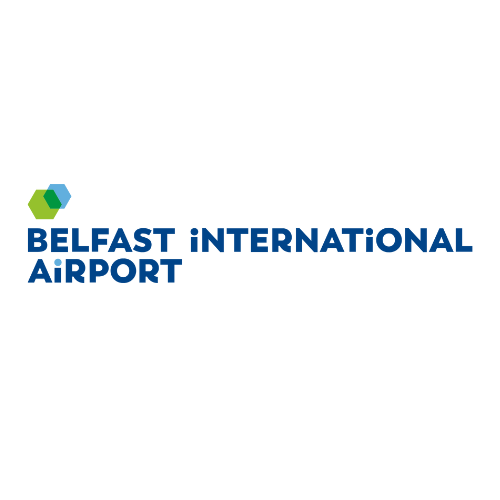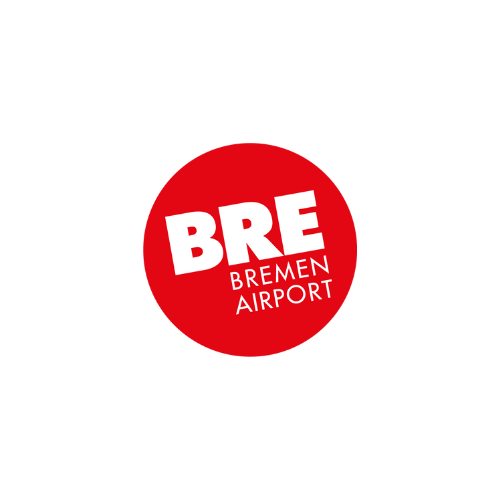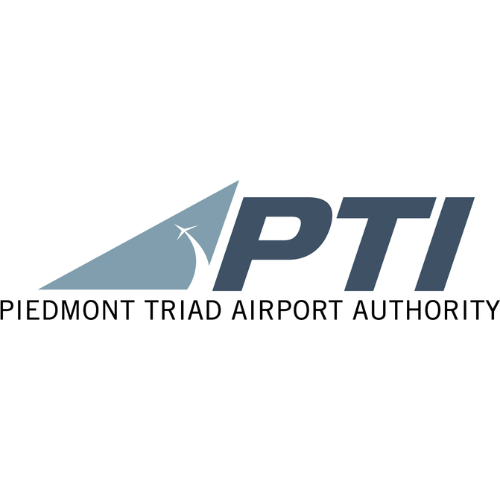Global competition and a dynamic economic landscape have put pressure on profit margins for airlines and airports. From the passenger perspective, a positive flight experience is no longer measured simply by the success of the journey. As the consumer experience becomes ever more integrated into digital, focus across industries falls on the customer. Going forward, the key to success for airports and airlines, both in terms of revenue and customer satisfaction, lies in optimising the natural partnership that exists between them.
Airline ‘a la carte’ revenue (the optional extras consumers can add to their airline shopping carts) is increasing exponentially. Ancillary sales were estimated at US $65 billion worldwide for 2018, representing a growing but still relatively small proportion of turnover. Meanwhile, for airports, non-aeronautical sales account for up to 58% of all revenue.
The potential for growth here has attracted the attention of airlines keen to generate revenue through sales of travel-related products like pre-reserved seats, upgrades and baggage, commission-based services such as car rentals, hotels and insurance, and booking and travel retail sales.
The ancillary revenue from airlines is primarily generated by flight-related products and frequent-flyer programmes. But increasingly there’s an interest in promoting digital omnichannel retail and bundled price products too.
However, the software infrastructure of most airlines was built to sell flights and optimise flight bookings rather than develop an omnichannel sales funnel. This creates challenges when looking to harness the potential of retail and optimise customer lifetime value.
Experiences over physical products
Today’s traveller values personalisation, individual empowerment, and tailored experiences. Increasingly, customers actually value experience over physical products.
In the customer sales funnel this should be approached in a simple, functional manner, through proactive and predictive digital applications.
Travel retail has seen a rise in local brands at airports and within airline products. This local ‘flavour’ can be a differentiating factor as air travel retailers embrace the concept of ‘lifestyle’ products over bulky duty-free goods. Travellers have high expectations of an airline’s retail product portfolio, and they expect to be able to buy exclusive, exciting, luxury products.
Whilst onboard sales are subject to procedural and scheduling restrictions, airlines can create and manage customer expectations and anticipation to optimise pre-flight retail opportunities.
Embracing digital channels
In March 2017 United Airlines announced an end to its in-flight duty free programme. This move highlighted the need for airlines to embrace digital channels to boost onboard ancillaries.
For example, London’s Heathrow Airport has made shopping more convenient with its Heathrow Boutique service. This allows travellers to reserve products before their flight, and then collect and pay for their items at the airport. It builds a home-to-gate shopping experience that engages customers with the airport before they even arrive at the terminal. As a result, the airport has experienced ‘outstanding’ retail performance.
When an airport partners with airlines to create an integrated sales channel it becomes possible to connect with passengers at home, in the airport and in-flight through onboard Wi-Fi. Airports, airlines and passengers will all benefit.
Naturally, it is only possible to integrate sales channels when the right business models are in place. Airlines and airports need access to the right technologies and profit-sharing mechanisms. In this way, costs can be minimised, data can be optimised and customers can enjoy the extended advantages of an integrated shopping platform.
Optimising passenger data
Airlines hold a lot of customer data, giving access to insights that can be used to predict customer behaviour and offer relevant products and services, improving the customer experience. Even details such as preferred currency and payment method can inform up and cross sell opportunities. When this data is supplemented with frequent flyer data, there’s a much larger scope for personalised marketing.
While airports traditionally lost out on customer data to airlines, the integrated booking features within Rezcomm’s combined platform for airport sales, marketing and smart passenger profiling, allow for sophisticated data capture and segmentation.
By partnering with airports, airlines gain an even broader view of the customer and their retail preferences. Technology opens up new retail opportunities like airline in-flight shopping platforms and apps. These digital portals remove cash currency or geo-limited credit cards by enabling worldwide, secure payment platforms.
There’s no restriction on what can be sold, and there’s a definite benefit in offering an attractive retail portfolio for passengers when they have nothing else to do. Shopping for any item can be made easy, and delivery can be to the customer’s home address or to the airport.
It also makes sense to sell travel and destination-related goods and services, allowing passengers to book things like meals out, spa treatments, tours and accommodation whilst onboard.
New opportunities for partnership
Airlines and airports both have a truly captive audience and a large amount of ‘retail influential time’ to work with. In-flight retail is gaining momentum, but there are still plenty of untapped opportunities within the customer sales funnel. These can be addressed by using customer data to determine and predict customer needs and expectations.
Whilst airlines may not have unlimited warehouse space, and every kilogram of unsold merchandise counts towards fuel costs, airports are built like giant shopping malls.
Conversely, the airport can be perceived as a stressful place by some travellers, particularly those who feel rushed. These people will have no time to browse the shops and are more likely to find a product that meets their needs once they are onboard the plane.
Airlines are familiar with commission-based sales, and this is a good model for airports too. The end goal is to integrate the customer journey so the switch from airport to airline customer is frictionless.
One way to introduce this would be to allow passengers to use frequent flyer miles or loyalty points as currency within the airport. Airports and airlines could also create joint promotions, or partner to build a mobile app. When airlines are focused on ancillary revenue, this opens new opportunities for airports to market and sell the non-aeronautical goods and services offered by airlines in the terminal. In this way, airlines and airports begin to manage the customer experience in partnership.
Another opportunity for partnership lies in Rezcomm’s integrated booking systems for airports. Using this technology customers can buy flights directly from the airport, and airlines can experience the benefits of the airport as a one-stop travel shop.
Provide your customers with a better experience and offer them more choice by becoming a Rezcomm Travel Partner. To find out more, simply contact us for a chat.
When the customer touchpoints are with the airport, the link for travellers is seamless. And airport marketing can then in itself become a vehicle for filling planes to capacity, further increasing operational efficiency and profit.
Some more ideas for partnering
- Link loyalty programmes so that passengers can enjoy rewards anywhere
- Allow customers to use airline miles to access parking spots or get food and beverage discounts
- Allow customers to use airport loyalty points for in-flight upgrades
The benefits
Partnering allows airports and airlines to offer a bigger and better variety of goods and services and a more personalised customer experience to a greater capacity of travellers. It also allows them each to see more clearly where there is room for improvement.
Asia’s Changi Airport is developing its strategy to support its airport partners, including the introduction of strategic measures to lower airlines’ costs, boost passenger traffic and improve operational efficiency. The airport is also partnering with trade and tourism organisations with the intention of strengthening its status as a major hub for Singapore.
Again this benefits the passenger. A unified technology platform can reduce inefficiencies, streamline the customer journey and lessen costs, meaning a better price for goods and services and more deeply tailored offerings.
Travel without friction
The goal for both airlines and airports is to give passengers a smooth journey from doorstep to doorstep. The challenge here is that different legs of that journey can be disconnected, resulting in passenger pain points.
Technology can help. Features like automated check-in can reduce wait times for drop-off or baggage reclaim. But more can still be done to create a seamless experience. And not just through the physical journey: Throughout the entire customer journey.
Airports and airlines can easily share information using systems integration and digital automation. This means they can optimise operations, eliminating customer pain points such as lengthy security queues from the airport. It also opens opportunities to enhance decision-making and cross-selling, targeting customers to ensure they get what they need and want quickly and easily.
These benefits extend beyond passenger travel to commercial concerns including cargo carriers too.
The changing face of airport retail
As retail continues to move down the digital route, there is both the desire and the opportunity for airlines to increase their retail offering in the next few years in line with the trend for non-aeronautical revenue growth in airports.
This is a chance for co-operation rather than competition between airports and airlines. There is much room for innovative retail processes to be developed in partnership to the benefit of everyone, not least the customer.
Airlines and airports that embrace this new business model should see financial benefits in both the short and long term. This means integrating sales channels, connecting loyalty programmes, sharing physical and digital resources and working together to make the customer sales funnel easier to navigate.
The natural partnership between airports and airlines has so much to offer in terms of revenue and customer best practice. Rezcomm can help your airport or airline understand how to integrate ecommerce and operational systems to get the most from this alliance.
Rezcomm is the partner of choice for airports worldwide. Our team are experts in supporting the customer funnel through smart, intuitive tech. If you have any questions about how you can use our integrated platform to form successful partnerships, contact us for a chat.




























